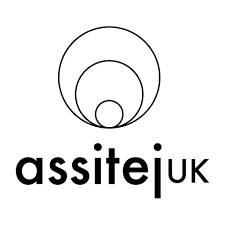Across the Globe, we are all at different stages of our relationship with this pandemic. In the UK – theatres are shut, shows cancelled, festivals postponed, audiences refunded, households in lockdown.
Many children and their adults are embarking on a new adventure: home-schooling. Humans love to learn, and none more than children. Some parents are trying to recreate the school environment in their houses, others are finding less formal, more creative ways to support their children’s natural curiosities. Creativity in lockdown is inspiring.
There are moments of national connection too, where thousands nationwide tune in daily to PE lessons delivered via Youtube! Spare a thought for the parents, many of whom have not taken part in a physical education class for years. But we must not forget the many children who are in precarious places right now in the UK, with no access to the internet and less than stable family conditions without so much as a local park to let off steam in. These are the children who will be needing us the most on the other side, if we can but reach them.
Audiences are being engaged in new ways. Many organizations have made shows available online. Parents are turning their living rooms into theatres. The speed and generosity with which digital content has appeared has been breathtaking. Often it’s hard to keep up!
Our government also seems to be listening (even if it is moving more slowly than a lot of people would hope). They’ve taught us a new word: furlough. This government scheme pays 80% of the salaries of workers who might otherwise be made redundant. These workers then stay at home, but, in order to qualify for the funding, they’re unable to work. For many in the theatre sector, this will be the lifeline that will enable them to open their doors once this is all over. For teams, some of whom are desperate to work, others desperate to stay home to do the childcare, others taking on the workload of three or four furloughed colleagues, it could be divisive.
We’ve been blessed with brilliant, quick and clear leadership from most of our Arts Councils in responding to this crisis. In Scotland, the decision to cancel all of the major festivals will have a huge impact across the arts sector. Creative Scotland quickly assured organisations in receipt of regular funding that their funds could be used for resilience. Then alternative funds were announced to enable creative development to continue during lockdown for non-regularly funded organisations. These funds are now bowing under the sheer bulk of applicants and since in Scotland, the majority of TYA organisations are outside of the regularly-funded network, TYA organisations may have a long wait to see whether they can gain any kind of support.
The English and Welsh Arts Councils have responded similarly but what concerns many organisations across the land is that, in allocating ALL the National Lottery Funding to emergency funds, how will organisations be able to survive 6, 12 and 18 months from now?
In Northern Ireland however, arts organisations still await any kind of word from their Arts Council. Some are still awaiting news of core funding, starting last week, although the Arts Minister there did recommend all core funding to roll over one year, as it has in England.
The history of story-telling is a long and rich one. We are resilient, and we continue in whatever way we can. Already the shoots of hope are beginning to emerge. Organizations are doing all that they can to find ways of putting money directly in the pockets of artists. Some are offering help applying for government benefits. Some are reading Arts Council applications. Many are making themselves available to artists. Many artists talk of the struggle to be creative – and, of course, that is fine. Assitej UK will continue to advocate for us, and our art form, until live theatre can return.





